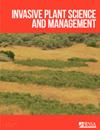Tourists’ (mis)understandings of nature: International and domestic visitors’ perceptions of invasive alien plants in New Zealand
IF 1.2
4区 生物学
Q3 PLANT SCIENCES
引用次数: 0
Abstract
Tourism, as one of the world largest economic sectors, moving a substantial body of individuals and materials about the world, is implicated in the spread of invasive plants and is itself impacted by biological invasions which can degrade touristic landscapes and affect destination communities. Tourists constitute not only an immediate biological threat, but through their landscape and biota preferences also constitute a substantial economic and ecological force that has implications for invasive plant management in destinations. Tourists and the tourism industry are therefore significant stakeholders in invasive plant introduction, spread and management. This paper discusses an onsite survey (n=231) of domestic and international visitors in New Zealand, a destination where invasive species are an important ecological and economic issue. Findings show that visitors have a low understanding of the presence and level of threat of invasive plants, and express preferences for some plants that are highly invasive. However, there were substantial variations across the international sample, with visitors from Asian and European ethnicities expressing significantly different attitudes towards a range of invasive plants. Asian visitors were more likely to show preferences for some plants that were seriously invasive, and to be more accepting in general of invasive plants within landscapes, and less supportive of invasive species eradication. These findings suggest that attitudes towards invasive plants and their management may be culturally determined, which poses challenges for managers aiming to generate awareness and support from across diverse tourist cohorts for invasive species control. There are also challenges for gaining support from the tourism industry for invasive plant control programmes where particular ‘charismatic’ or attractive invasive plants may contribute to touristic landscapes and visitor itineraries.游客对自然的(错误)理解:国际和国内游客对新西兰外来入侵植物的看法
旅游业作为世界上最大的经济部门之一,在世界范围内运送大量的个人和物质,与入侵植物的传播有关,本身也受到生物入侵的影响,这些入侵会使旅游景观退化并影响目的地社区。游客不仅构成了直接的生物威胁,而且通过他们对景观和生物群的偏好,也构成了一股巨大的经济和生态力量,对目的地的入侵植物管理产生影响。因此,游客和旅游业是入侵植物引进、传播和管理的重要利益相关者。本文讨论了对新西兰国内外游客的现场调查(n=231),入侵物种是一个重要的生态和经济问题。调查结果表明,游客对入侵植物的存在和威胁程度的认识较低,对一些高度入侵的植物表现出偏好。然而,在国际样本中存在着很大的差异,来自亚洲和欧洲种族的游客对一系列入侵植物表达了明显不同的态度。亚洲游客更有可能对一些严重入侵的植物表现出偏好,并且更容易接受景观中的入侵植物,而不太支持入侵物种的根除。这些发现表明,对入侵植物及其管理的态度可能是由文化决定的,这对管理者提出了挑战,他们的目标是提高不同游客群体对入侵物种控制的认识和支持。在获得旅游业对入侵植物控制计划的支持方面也存在挑战,在这些计划中,特定的“有魅力的”或有吸引力的入侵植物可能会对旅游景观和游客行程做出贡献。
本文章由计算机程序翻译,如有差异,请以英文原文为准。
求助全文
约1分钟内获得全文
求助全文
来源期刊

Invasive Plant Science and Management
PLANT SCIENCES-
CiteScore
2.20
自引率
9.10%
发文量
24
审稿时长
6-12 weeks
期刊介绍:
Invasive Plant Science and Management (IPSM) is an online peer-reviewed journal focusing on fundamental and applied research on invasive plant biology, ecology, management, and restoration of invaded non-crop areas, and on other aspects relevant to invasive species, including educational activities and policy issues. Topics include the biology and ecology of invasive plants in rangeland, prairie, pasture, wildland, forestry, riparian, wetland, aquatic, recreational, rights-of-ways, and other non-crop (parks, preserves, natural areas) settings; genetics of invasive plants; social, ecological, and economic impacts of invasive plants and their management; design, efficacy, and integration of control tools; land restoration and rehabilitation; effects of management on soil, air, water, and wildlife; education, extension, and outreach methods and resources; technology and product reports; mapping and remote sensing, inventory and monitoring; technology transfer tools; case study reports; and regulatory issues.
 求助内容:
求助内容: 应助结果提醒方式:
应助结果提醒方式:


